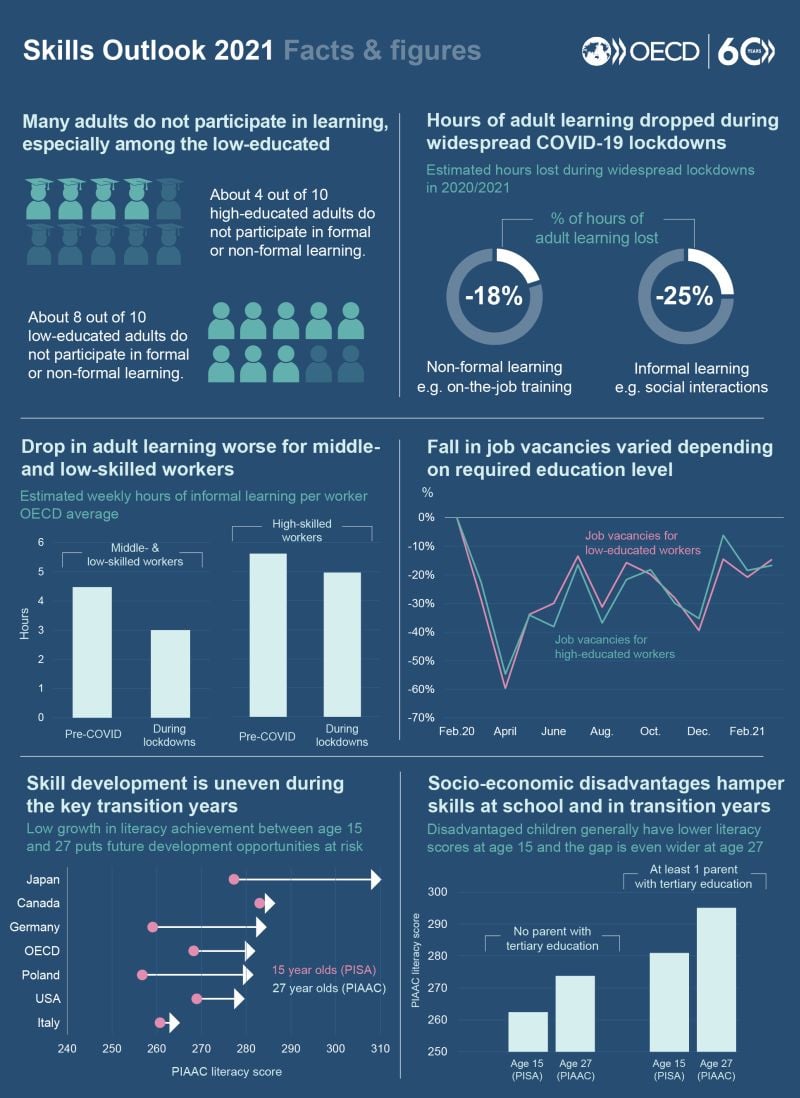Education

OECD Skills Outlook 2021
Learning for Life
Lifelong learning is key if individuals are to succeed in labour markets and societies
shaped by megatrends such as increases in life expectancy, rapid technological changes,
globalisation, migration, environmental changes and digitalisation, as well as sudden
shocks like the COVID-19 pandemic. In a fast-changing and uncertain world, lifelong
learning can help individuals adapt and become resilient to external shocks. While
government support remains valuable to ensure that major structural changes do not
lead to deep tears in the social fabric, creating a culture of lifelong learning gives
individuals themselves agency to manage change. This calls for evidence on the best
ways to support lifelong learning journeys, so that individuals can “learn how to
learn”. This edition of the OECD Skills Outlook 2021 explores how policies, particularly
those that govern skills development and use, can best promote lifelong learning for
all. The report exploits comparative quantitative data to highlight the key role played
by socio-emotional and motivational factors in shaping successful engagement with
lifelong learning. While such factors are essential to sustain lifelong learning in
general, the pandemic has further increased their relevance.
Published on June 15, 2021Also available in: French
TABLE OF CONTENTS
| Foreword | |
| Reader’s guide | |
| Acronyms and abbreviations | |
| Executive summary | |
| Key facts and figures (infographic) | |
| Overview | |
| Attitudes and dispositions: The foundations of lifelong learning | |
| Lifelong learning trajectories: The transition from compulsory schooling to young adulthood | |
| Promoting interest and participation in adult learning | |
| Navigating skill demands in turbulent times |
Powered by OECD iLibrary

 Follow us on Twitter via
Follow us on Twitter via 